
by Senator Ben Kieckhefer --
With our superheated national political scene, it’s all too easy to forget that much of the work of the Nevada Senate represents small, step-by-step measures to help make this a better state.
Much of the legislation that we review is anything but exciting, but it improves daily life and fine-tunes the operation of government to make it more efficient and responsive.
Just to cite one example, I’m the sponsor of a bill (SB 414) that would double the number of students who benefit each year from the Kenny C. Guinn Memorial Millennium Scholarship.This scholarship helps support Millennium Scholars who are planning on becoming teachers.
The bill is straightforward. Currently, the Board of Trustees of the College Savings Plans of Nevada is required to award one scholarship each year to a student at a college in northern Nevada, and one scholarship each year to a student at a college in southern Nevada. With my bill, two students from each end of the state would receive scholarships.
Kenny Guinn’s service as governor long will be remembered for bringing to thousands of students a college education that otherwise would have been out of reach.
Doubling the number of students who benefit from Kenny C. Guinn Memorial Millennium Scholarship pays tribute to the accomplishments of this respected leader. Even more important, this bill will make a life-changing difference to two highly deserving students each year.
Another bill I’ve proposed (SB 279) provides clear guidance about the ways that general improvement districts in Nevada can sell real estate.
There are dozens of general improvement districts located in nearly every county in Nevada. They’re created by county and city governments to finance the infrastructure — streets, for instance, or water lines — needed to support economic development.
Those districts currently can sell any real estate they own. But state law doesn’t spell out the procedures general improvement districts need to follow, either to get a fair price or to ensure that the sale is transparent to taxpayers.
Rather than create a whole new process, my bill requires that general improvement districts follow the same process that’s used when other local governments sell real estate. They’d be required, for instance, to get two appraisals and sell the property for no less than the appraised value. To ensure that the process is transparent, the bill requires notice to the public and votes in meetings that are open to the public.
The bill doesn’t create government red tape. Instead, general improvement districts will have a clear set of rules when they need to sell property. And the business of the public will be conducted in public.
Transparency for taxpayers also is at the heart of another bill I’m sponsoring, SB 410.
Currently, the state can issue tax credits to companies that build big projects in the state — projects that invest at least $1 billion.
The companies that receive these tax breaks can turn around and sell them to other companies. The Nevada Office of Economic Development can authorize as much as $38 million of these transferable tax credits at any time.
Here’s the problem: these credits were approved by the legislature with a single project in southern Nevada in mind. That project never materialized, and they can now be used to help lure any project anywhere in Nevada. If economic development officials want to issue such significant public support for a company, they should have to come and justify it to the legislature.
Good government requires that taxpayers be able to understand the financing of these deals. When $38 million in tax breaks can be awarded with no legislative oversight, good and transparent government is out the window.
I’m pleased that this bill has won strong bipartisan support.
None of these bills is likely to garner big headlines. But, like hundreds of other measures considered by the Nevada Legislature each year, they will make government more efficient and make life better for the people of our state. This is really what the work of the Legislature is all about.
Keep up with all that’s happening – check the Community Calendar at https://www.thefallonpost.org/events/
Support local, independent news – contribute to The Fallon Post, your non-profit (501c3) online news source for all things Fallon.




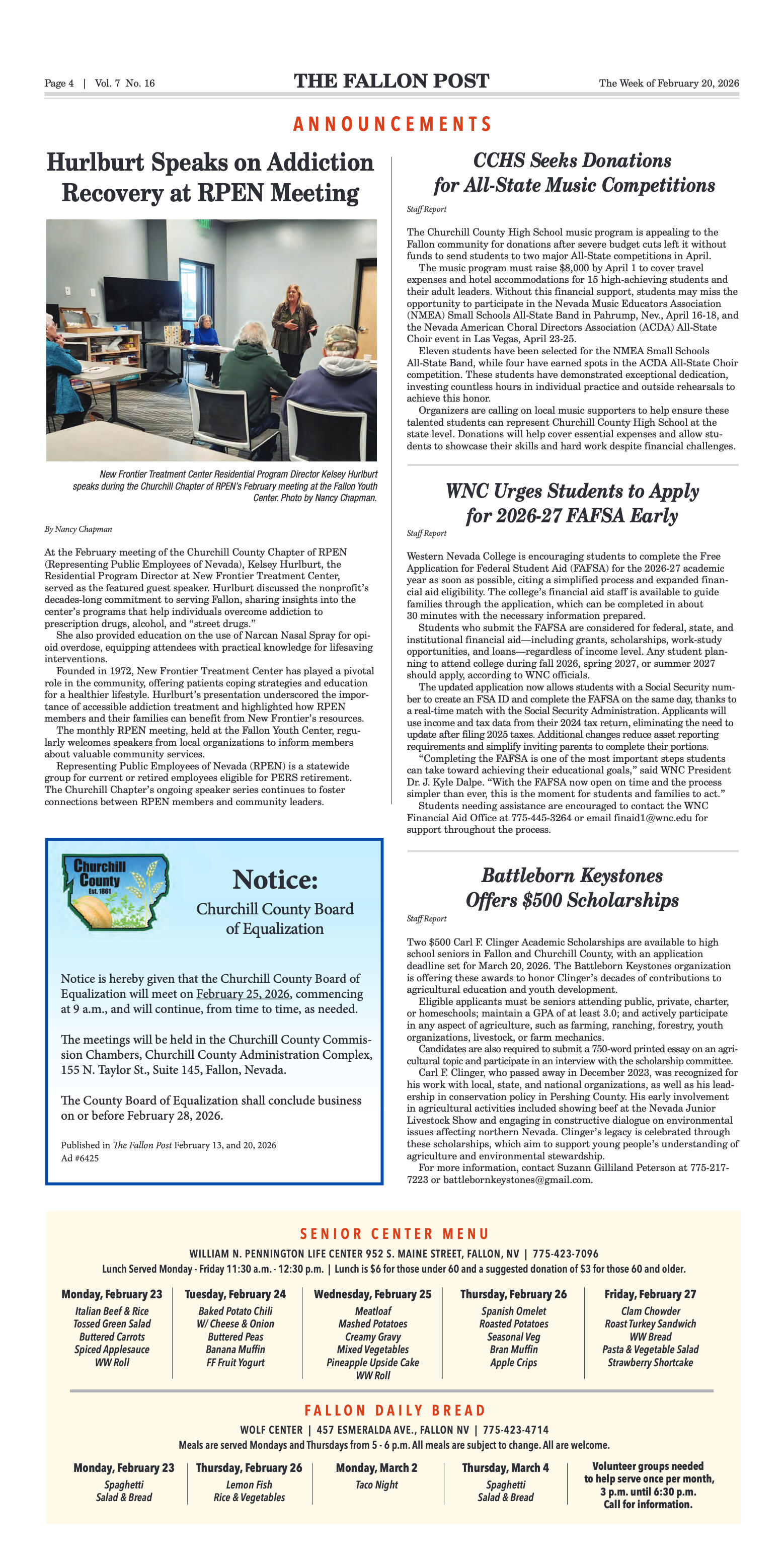
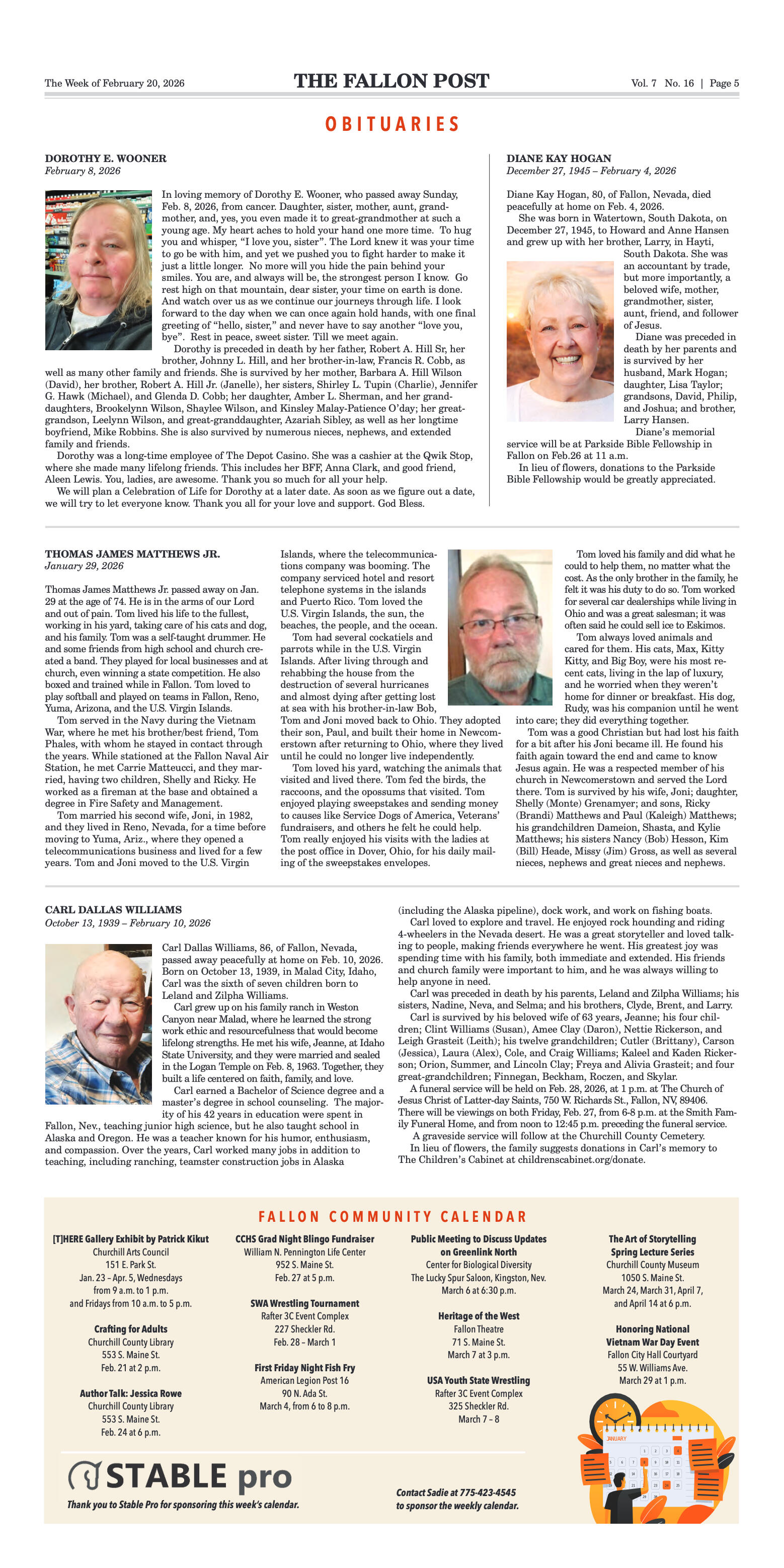
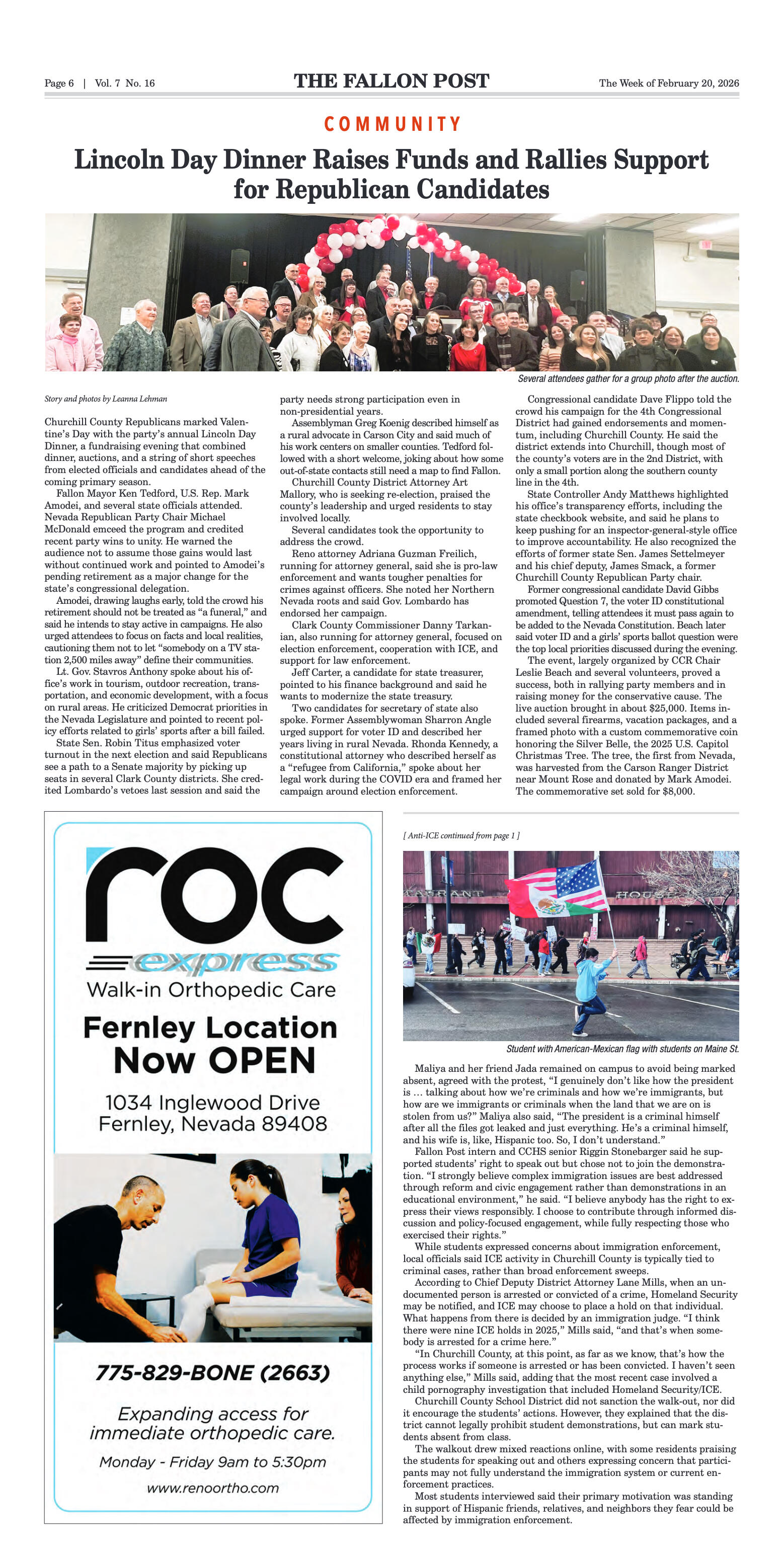


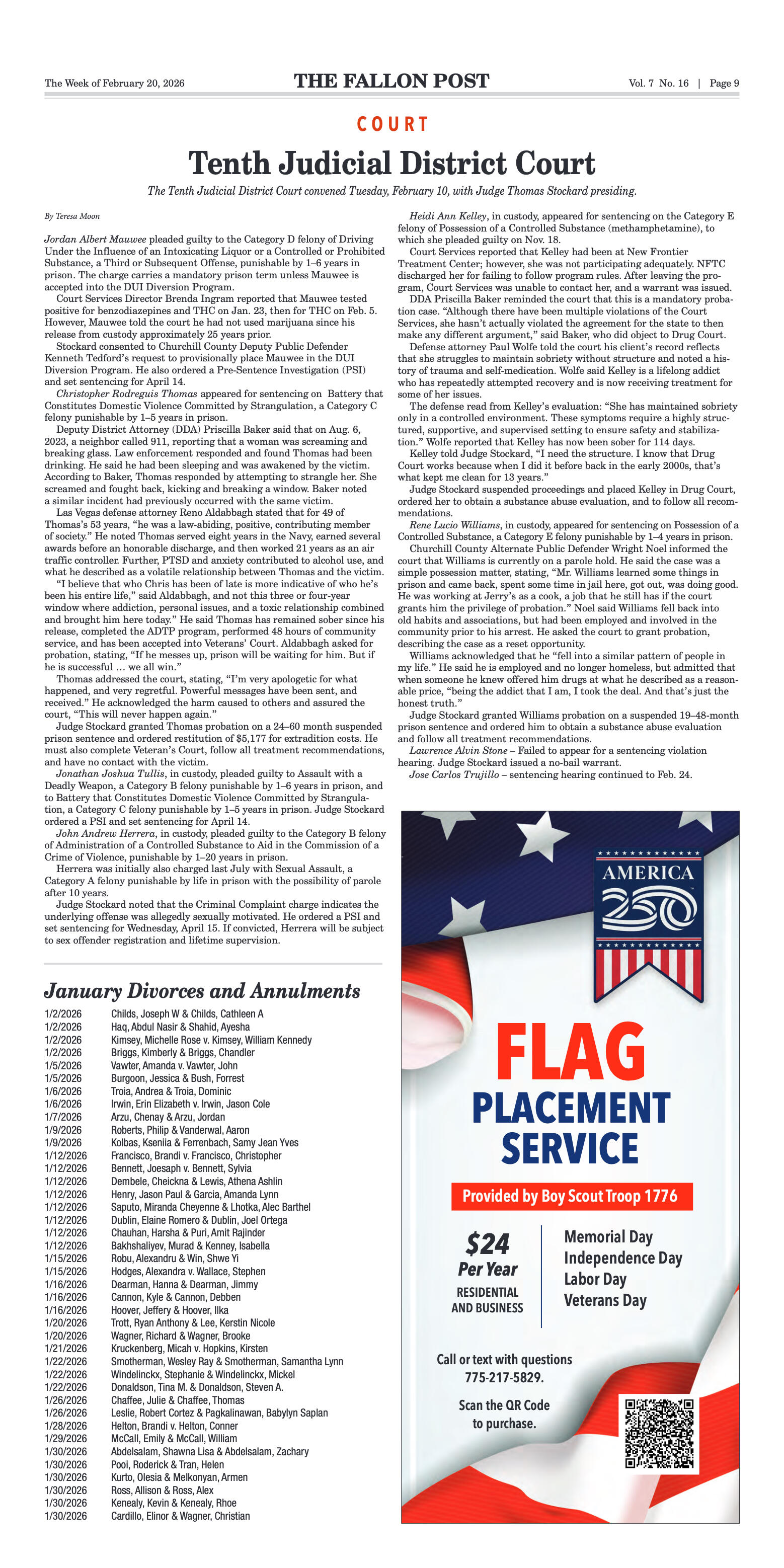




























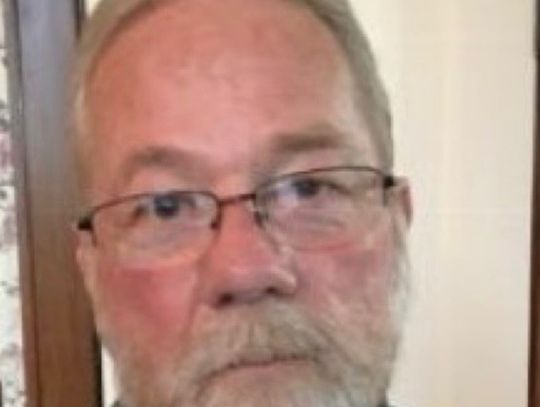




Comment
Comments